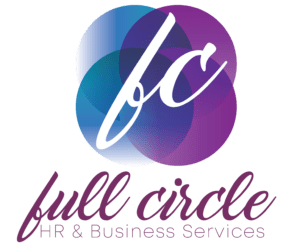Recently, our Operations and OHS Lead, Tania, attended the two-day Workplace Health & Safety Show in Melbourne. The event showcased the latest OHS products, services, and insights from a diverse group of experts. Tania’s focus areas were those that are highly relevant to our clients, including:

- Return to Work Victoria gearing up for new regulations
- Psychological risk management
- Musculoskeletal injury
- Transitioning from reactive to proactive OHS management
- Forklift maintenance
It was clear that whilst all areas of OHS are vitally important, the hot topic in 2024 is Psychological Injury.
WorkCover Insurance Shake-Up
The opening address by Paul Guerra, CEO of the Victorian Employers’ Chamber of Commerce and Industry (VCCI), highlighted significant challenges facing the WorkCover insurance scheme. Claims have tripled over the past decade, mainly due to a significant rise in mental injury claims, which were not part of the scheme’s original 1985 design. Consequently, the scheme has become outdated, costly, and in need of modernisation.
Key announcements included:
- Eligibility for Mental Health Claims: The Victorian Government has introduced major changes to the WorkCover scheme, including stricter criteria for mental health claims and limitations on workers’ compensation for some mental health injuries. Claims lasting more than 2.5 years will also see changes in eligibility.
- Reducing Frivolous Claims: Efforts are being made to curb frivolous mental injury claims, which have significantly driven up the scheme’s costs.
- Premium Freeze: Businesses will benefit from a freeze on WorkCover premiums, capped at a 1.8% increase for the 2024-25 financial year.
For more information, you can visit the VCCI website.
Announcement of Return To Work Victoria
Originally expected in 2022, the Victorian Government is still deliberating proposed changes to the OHS Regulations to introduce Victoria’s first psychological health regulations within the OHS framework. These proposed regulations aim to reinforce the OHS framework and recognise that hazards posing a risk to psychological health are just as harmful as physical hazards.
As part of these preparations, the Allen Government has announced the establishment of Return to Work Victoria. This pilot program will:
- Focus on promoting effective occupational rehabilitation of injured workers
- Encourage employers to provide suitable job opportunities for injured workers
- Identify innovative injury prevention and return-to-work strategies
- Provide a worker support hotline offering mental health support for work-related stress and burnout
- Provide support for small and medium-sized businesses to create mentally healthy workplaces
For more details, visit the Premier of Victoria’s website.
Preventing Mental Injury
Many speakers throughout the two-day event focused on the prevention and management of mental injury, a hot topic for business owners, leaders, and OHS Managers. Notably, Dr. Georgi Soma, Director of Heart & Brain Works, an honorary research fellow at the University of Auckland, and the creator of The Wellbeing Protocol (a scientifically validated program to reduce burnout and improve mental well-being in the workplace), spoke passionately about this topic. Dr. Soma’s free monthly one-hour online Professional Development classes are attended by hundreds of leaders, including executives, managers, WHS/OHS, HR, and other professionals. These classes explore topics such as:
- Employee wellbeing and psychosocial risk management
- Respect and civility
- Burnout and stress
- Employee engagement and retention
You can learn more about these classes at the Heart and Brain Works website. Tania is booked to attend the next session.
Free Tool to Reduce Musculoskeletal Disorders
The APHIRM Toolkit uniquely addresses both the physical and psychosocial hazards that lead to musculoskeletal disorders (MSDs) and provides free cloud-based tools and resources to help manage these risks. Developed by La Trobe University Centre for Ergonomics and Human Factors, APHIRM stands for A Participative Hazard Identification and Risk Management. The APHIRM toolkit includes resources to:
- Identify the hazards in the workplace that increase the risk of MSDs
- Engage employees in the risk management process
- Design actions that address specific hazards
- Monitor progress and review outcomes
Employers should use the APHIRM toolkit alongside WorkSafe’s guidance on hazardous manual handling and MSDs. You can learn more about this tool at La Trobe University’s website, which offers some excellent short explainer videos about this tool.
To learn more or access this tool, visit the APHIRM website.
Your next step
If you’d like to discuss any of the topics outlined here or would like to consider partnering with FCHR to review the APHIRM toolkit for use in your workplace, reach out to our OHS Consultant Tania by emailing hello@fullcirclehr.com.au, or submit your enquiry here. You can also learn more about changes to WorkCover Mental Injury Claims in our article here.
Banner Image Credit: Workplace Health & Safety Show
